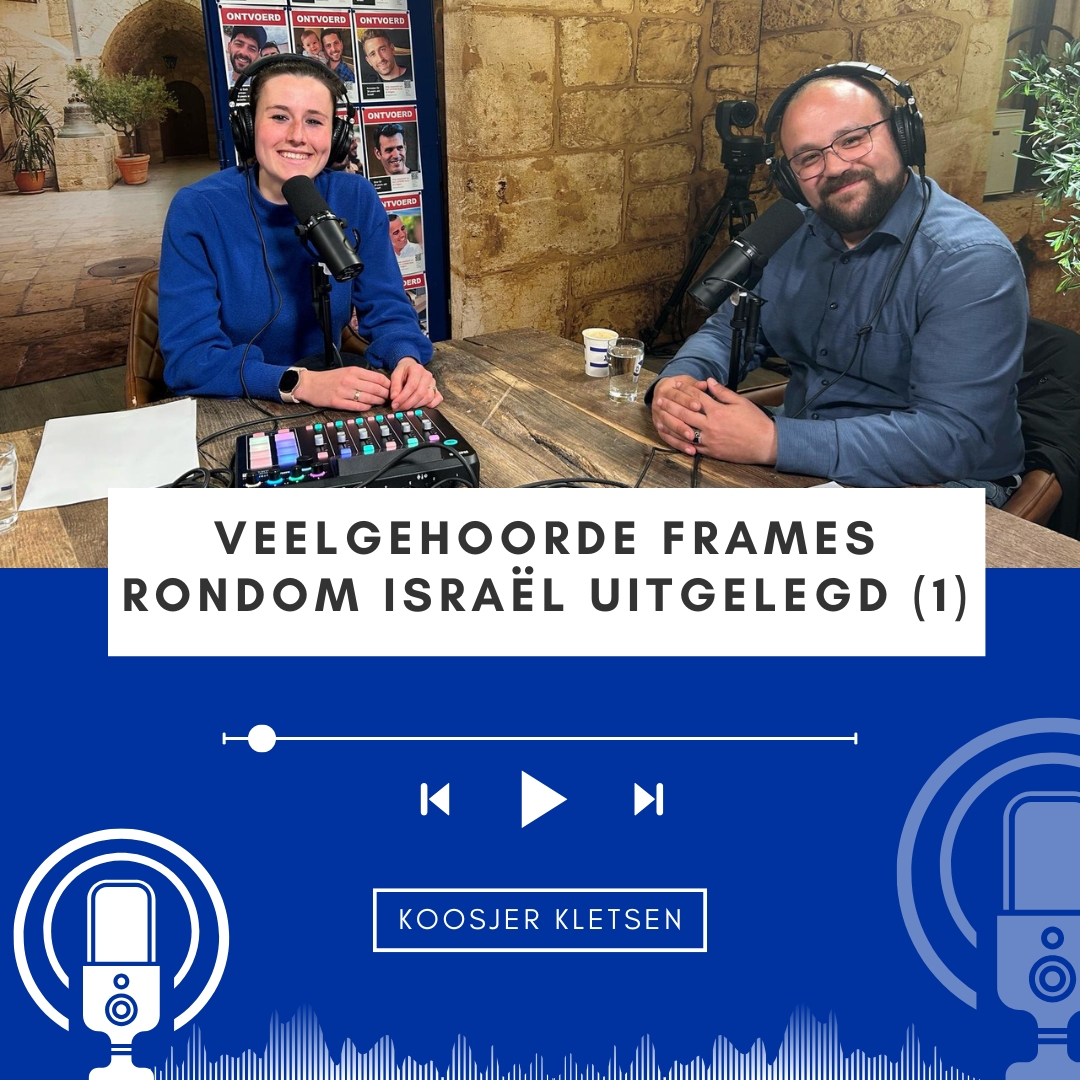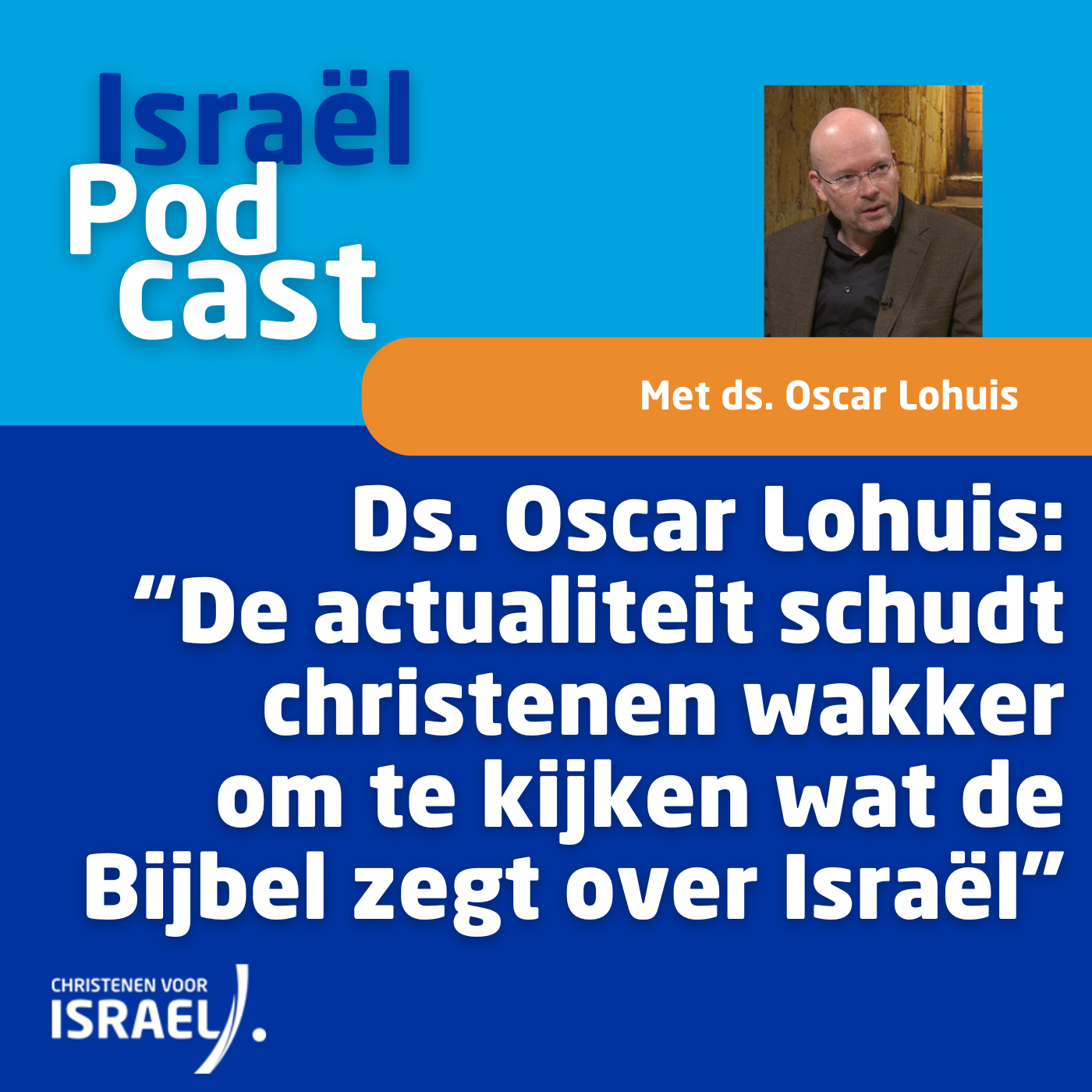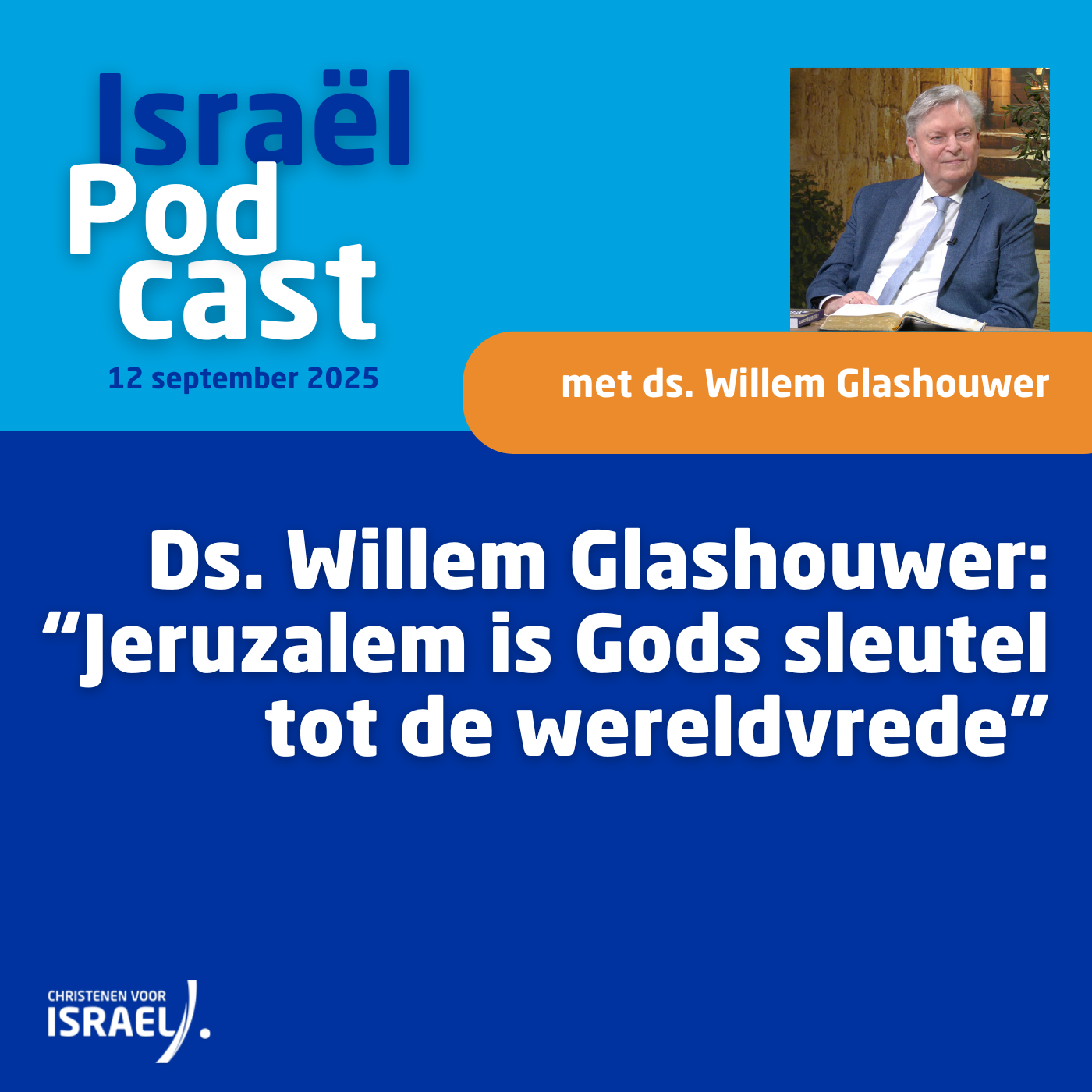Episode Transcript
[00:00:47] Speaker A: Sean Sachs, you are a senior researcher working for the NGO Monitor, and you are right now in the Netherlands. What is the reason for your visit?
[00:00:57] Speaker B: Well, I had the privilege of addressing the Foreign affairs and Trade Committee from NGO Monitor, an organization that monitors the funding and activities of NGOs in our region, particularly those that receive government funding. And I presented our report to the Committee on Dutch funding to NGOs that are in contrast and contravene Dutch values of a negotiated solution and recognition of Israel.
[00:01:29] Speaker A: So you spoke to members of Parliament about this issue. NGO Monitor has researched the flow of money from Dutch donations from the government to Palestinian NGOs. What is the reason you as NGO Monitor do that?
[00:01:45] Speaker B: Well, the most important thing is it's part of the mandate that Professor Steinberg came up with, is to provide an alternate voice to the NGO industry that often seems to take an anti Israel and political stance. And we provide critical information about their activities, their members and their funding with the idea that we encourage decision makers around the world to take a more critical view of these organizations.
[00:02:13] Speaker A: Because these organizations we're talking about, they are Palestinian NGOs. They are meant to help the Palestinian. Palestinian people living in west bank, in Gaza and wherever they are. So what is wrong with these organizations?
[00:02:28] Speaker B: Well, let's be honest. It's more than just Palestinian organizations. We look at Palestinian organizations, we look at Israeli organizations, we look at international organizations, we look at organizations also based in the Netherlands.
The trouble has always been that many of these organizations that claim to be human rights organizations are in fact political activists. They have significant political agendas. It can be anything from a particular view of Israel to hatred of the Jewish state, to a desire to have Israel as a Jewish state annihilated. And this is couched in the language of human rights. Two organizations going back many years ago that promoted bds, boycott, divestment and sanctions. Again, using the language of bds, two organizations today that in some cases even justified and celebrated the murders committed on October 7th.
[00:03:23] Speaker A: Yeah. So these organizations that you're talking about, not all of them, but many of the organizations, they are infested with hate against Israel, but still they get grants, they get funding from different governments, and in this specific case, from the Dutch government. So what did you share with the Members of Parliament today?
[00:03:43] Speaker B: So I had the privilege to address the committee and I shared with them a number of facts that we had discovered. The first being that there are a number of organizations funded by the Dutch government that reject Dutch foreign policy.
I had mentioned the fact that the Dutch government, the current Dutch government and its predecessors had all made Dutch policy towards Israel being a negotiated two state solution. Now we can argue about what does that mean. Issues like Jewish communities, settlements, Judea and Samaria, Jerusalem, all of those are still relevant. But the basic framework is a negotiated two state solution. That means the recognition of Israel as the Jewish state.
[00:04:25] Speaker A: So do you have examples from organizations that are being funded by the Dutch government that you say that they actually do the opposite of what the Dutch government is promoting politically?
[00:04:37] Speaker B: Yes, in fact, I have a number of examples and I provided them to the government.
For example, there's an organization called the Independent Commission for Human Rights, there's an organization called Almazan, and there are many others that openly reject the idea of Israel as a Jewish state. They call Israel a Zionist entity, colonial entity.
But what I was able to do, and this is the second part of my discussion with the committee, I showed them that in many instances, funding from the Netherlands is censored or hidden from the public. And that includes information that should be available on the Ministry of Foreign affairs website. I showed the parliamentarians almost live how information that should be available is removed from the website. We asked for freedom of information requests, as you call them. Wow, wob. We received blank pages.
And the third thing, this is the most important. I didn't come just to criticize.
I have great admiration for the Dutch people and the parliamentary democracy. And I came with suggestions of how the situation can be improved not only for Israelis, but for the entire region.
[00:05:53] Speaker A: So yesterday an article was published on the website of the Rights Forum. And the Rights Forum is a pro Palestinian organization that is very active in Nethergans. And they call your organization NGO Monitor Slander Factory, that you present a lot of so called evidence with lack of proof and that is damaging. Actually the NGOs that are working for the Palestinians. So my question to you is they accuse you of being a slander factory. But can you share with me what are exactly your research methods?
[00:06:30] Speaker B: Well, it's very sad that an organization like the Rights Forum refuses to engage. And rather than look at the facts that we present and look at our research, they immediately call us slander. And apparently anybody who asks critical questions of the human rights community is apparently extreme right wing. So I'll share with you how we get our information. It's quite simple. We look at the activities and the published activities and the statements of NGOs and then we look at the funding that comes from the governments. In this case, the information I presented to the committee came from the Dutch government websites. Themselves came from Freedom of Information requests that we presented to the Dutch government. There wasn't anything other than that. And the information about the NGOs that I presented were in documentation that the NGOs themselves publish in some cases on their websites, on their social media cases, and many times it's letters that they send out. In fact, one of the examples I used of an organization that appeared to celebrate October 7th was in a letter they sent to the United nations, all publicly available. And if the Rights Forum wants to call me a slander factory, well, that's because I'm just republishing information that anybody should read.
[00:07:47] Speaker A: So is there also any indications that the NGOs that you are researching that they are also involved or linked to terrorist organizations?
[00:07:59] Speaker B: We have looked significantly into terror affiliations. Now in the Netherlands, that is particularly troubling because a number of years ago, a Dutch funded organization in the Palestinian Authority, the organization was called the Union of Agricultural workers committee, the UAWC. They were receiving nearly 20 million euro from the Dutch government for agricultural projects. And it turned out that two members of this organization were involved in the murder of a young Israeli by the name of Rina Snerb. Now, the Dutch government ran their own independent investigation and they acknowledged that not only were these two men responsible for the murder, but nearly 20 other members of this organization that was receiving Dutch funding were openly connected to the Popular Front for the Liberation of Palestine, a terrorist organization designated by the European Union. So this information again exists. It is very troubling. And the Israeli government has also put out their own report on six other NGOs that are also apparently, according to the Israeli government, terror affiliated.
[00:09:07] Speaker A: This is one example of an organization that has affiliation with terrorist organization, in this case PFLP. Are there is this a widespread problem among the NGOs?
[00:09:20] Speaker B: So like I said, the Israeli government has found at least six other examples that are in the public sphere. We have found a number of other connections. But to say that these organizations themselves are terrorist organizations, that is on a government level. And one of the things I mentioned to the committee, there should be more collaboration when we're dealing with large amounts of government funding between security authorities both in Israel and the Netherlands.
[00:09:51] Speaker A: A few months ago we heard in the news that nine staff members at the UN agency for the Palestinian refugees, the UNRWA, had been involved in the October 7 Hamas led attack on Israel. That's what the United nations Sundays. And all nine of them were fires. But now UNRWA claims that they have this problem under control. Would you Also say the same for the other organizations. As soon as they fire people who are tied or linked to terror organization, then the organizations are fine.
[00:10:28] Speaker B: No, not at all. UNRWA is just one problem that there are many organizations looking into it. We look at the NGOs, but the way you brought it up is very important.
Before October 7, in order for any organization to function in Gaza, whether they were an ngo, a human rights organization or a medical organization, they had to have some type of connection with the Hamas authorities. They knew Hamas was smuggling weapons, they knew Hamas was digging tunnels. So that means even the organization with the best of intentions must have had some connection to Hamas authorities.
And going forward, when we know there's going to be massive amounts of aid going to Gaza in the future, what is going to happen to the oversight that should be there? And we saw just this week where dozens of UN trucks that were bringing aid to the Palestinians were hijacked. And according to the United nations, they were hijacked by armed men and they refused to say who they were. So this problem persists and the United nations is not doing anything about it. And the NGOs themselves unfortunately are not either.
[00:11:35] Speaker A: Yeah, you mentioned that the Dutch funding that is given to the Palestinian organization, it is published on the website and the site's name is NL und Vickerlingshulpent nl. That's where you see all the organizations. But what is wrong with the transparency on this website? Can you elaborate a little on that?
[00:11:56] Speaker B: Absolutely. So that is one of the major presentations I made to the committee. When you look there, the website itself used to be very good. You could go to a particular project, you could search project areas, you could search who are the recipients of the funding. But now when you go to the projects in the Palestinian territories, as it is called on the website, the project have very vague names like project in Ramallah, project in Palestinian areas. And we look at who's receiving the funding. The website, in some cases projects that are worth millions of euro, says local ngo, Palestinian ngo, donor based ngo. In some cases the recipients are the United Nations. Now the United nations doesn't get this money. The United nations passes this money on to NGOs and when we look at the documentation that's supposed to be presented on the website, it links us back to blank pages.
[00:12:50] Speaker A: So what is the reason that the transparency is so bad? Do they give a reason for that?
[00:12:57] Speaker B: Well, the answer we received in one instance with regards to a freedom of integration request was that they are worried about the security and safety of the people who work at these organizations. Now. I appreciate that, but we're not asking for names, we're asking for the names of organizations. And particularly in the case of the Netherlands, where Dutch government funding went to an organization and they admitted that two people in this organization were responsible for the murder of an Israeli in a terrorist attack.
The Dutch government, in my opinion, has an obligation to make the funding recipients public.
[00:13:38] Speaker A: So what was the reaction of the members of Parliament when you told them all of this week?
[00:13:44] Speaker B: Well, in the committee meeting and in meetings I had previously with members over the last few days, every single one of them was shocked at the lack of transparency.
Because as I'd mentioned in the committee, and I think, as everyone listening knows, the Netherlands maintains a commitment to human rights. And at the forefront of human rights is transparency. And the Netherlands should be an example for the world to follow with regards to transparency and openness. And unfortunately it is not. Not only is it an example not of. Sorry, unfortunately it's not an example. It's an example of what not to do.
[00:14:24] Speaker A: So my final question to you because in your reports that you also gave to the members of Parliament this week, you talk about the de radicalization of the Palestinian society and you gave some recommendations how to achieve that. Can you summarize what kind of recommendation you gave?
[00:14:43] Speaker B: Yes, absolutely. So, first and foremost, there needs to be transparency across the board. That means who is getting money, who is getting money via the Dutch government, who is getting money, Even second, third and indirect tiers. That is the most important thing. After that, the Dutch government needs to ensure that its policies are being maintained. So the Dutch government supports a negotiated two state solution. That means every recipient of Dutch government funding, wherever they are, needs to adhere to the fact that they acknowledge the existence of Israel.
It's quite simple. It's not anything radical. It's just maintaining Dutch policy. Another example that we provided is to ensure there are no terror ties to anybody receiving Dutch funding. And again, this is not something very radical. It could be put in contract that the Dutch, the Netherlands is part of the European Union. There is a designated terrorist that the European Union has published that includes Hamas, pflp, Islamic Jihad and others. Anyone receiving Dutch funding needs to sign that they have no affiliation or members that are part of these terrorist organizations. It's a very simple thing to do and I hope that the, the committee and the members of Parliament will follow through on this.
[00:16:03] Speaker A: Yeah, because you are appealing to them to get more control, more grip on the funding that they give. But is this also going to help to de radicalize the Palestinian society, or is it just more control?
[00:16:18] Speaker B: Well, I think both of those things come together. The most important thing that we want to achieve is a peaceful solution, and by preventing radical elements from receiving money, we are heading in the right direction.
[00:16:34] Speaker A: Sean Sacks from NGO Monitor, thank you very much for this interview.
[00:16:40] Speaker B: Thank you very much for having me.
[00:16:52] Speaker A: Kommender donnedach achten twintach November erch niserabe und manifestati ob de dam in Amsterdam. The Arn Leiding is a two name in the Antisemitisme in Onsland and Samme villever on the stem later in Onsland and Bahope. Marcel Anwesach Schultzein Abdesa avant dus Donderach Aachten 20 Dam in Amsterdam Norman's dunk fruit Keika and Bahopu folknevake in Amsterdam. Tazin.


